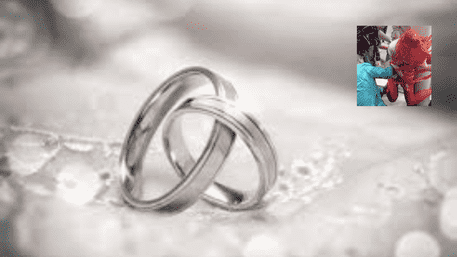A viral video has stirred outrage on Chinese social media, shedding light on an outdated wedding custom that many have deemed vulgar and inappropriate. The footage, which shows a bride being taped to a pole by a group of men, has sparked intense debate about the relevance of certain traditional practices in modern society. The video was widely shared on platforms like Weibo, leading to a strong backlash from viewers, who condemned the custom and called for its abandonment.
The Viral Incident: Bride Taped to a Pole
According to the South China Morning Post (SCMP), the video shows a bride in her wedding attire being tied to a pole with tape by several men, who were later identified as childhood friends of the groom. In the video, the distressed bride can be heard screaming and calling for help, but no one intervened. The men reportedly claimed that this was a part of a wedding “game” that both the bride and groom had agreed to in advance.
One of the groom’s friends, surnamed Yang, defended the act, telling SCMP that it was all in good spirits. “Making a bit of a scene at weddings is our local custom, all among good friends. There was no harm done,” he said, adding that the groom was present during the ritual and ensured the bride’s safety throughout.
The Tradition of “Hun Nao” and Its Evolution
The ritual seen in the video is part of an old Chinese wedding custom known as “hun nao,” or wedding hazing. Traditionally, “hun nao” was intended to create a lighthearted atmosphere and help the newlyweds relax. Centuries ago, it was believed that laughter on the wedding day would drive away evil spirits. However, over time, the custom has evolved, often turning into an opportunity for crude jokes and inappropriate games that many feel are no longer acceptable in today’s society.
Social Media Backlash
The viral video triggered a wave of anger across social media platforms, with many users criticizing the ritual for crossing the line. “Building your joy on someone else’s suffering is truly disgusting,” one user commented. Another wrote, “If something happens to the bride, who will take responsibility?” A third user echoed the sentiment, stating, “These vulgar wedding customs are relics of a bygone era. There is no excuse for hurting others.”
Government Response and Promises of Change
Following the widespread backlash, local authorities released a statement saying that Yang and the others involved had apologized for their actions. The government also vowed to take steps to modernize wedding customs, urging citizens to abandon outdated practices that could harm or humiliate others. Efforts will be made, according to the statement, to promote “civilized wedding customs” in line with current societal values.
The incident has sparked an ongoing conversation in China about the need to reassess traditional customs, especially those that could cause discomfort or harm in the name of entertainment. While wedding rituals are often a cherished part of cultural heritage, this episode highlights the importance of evolving traditions to reflect the dignity and well-being of all participants.







